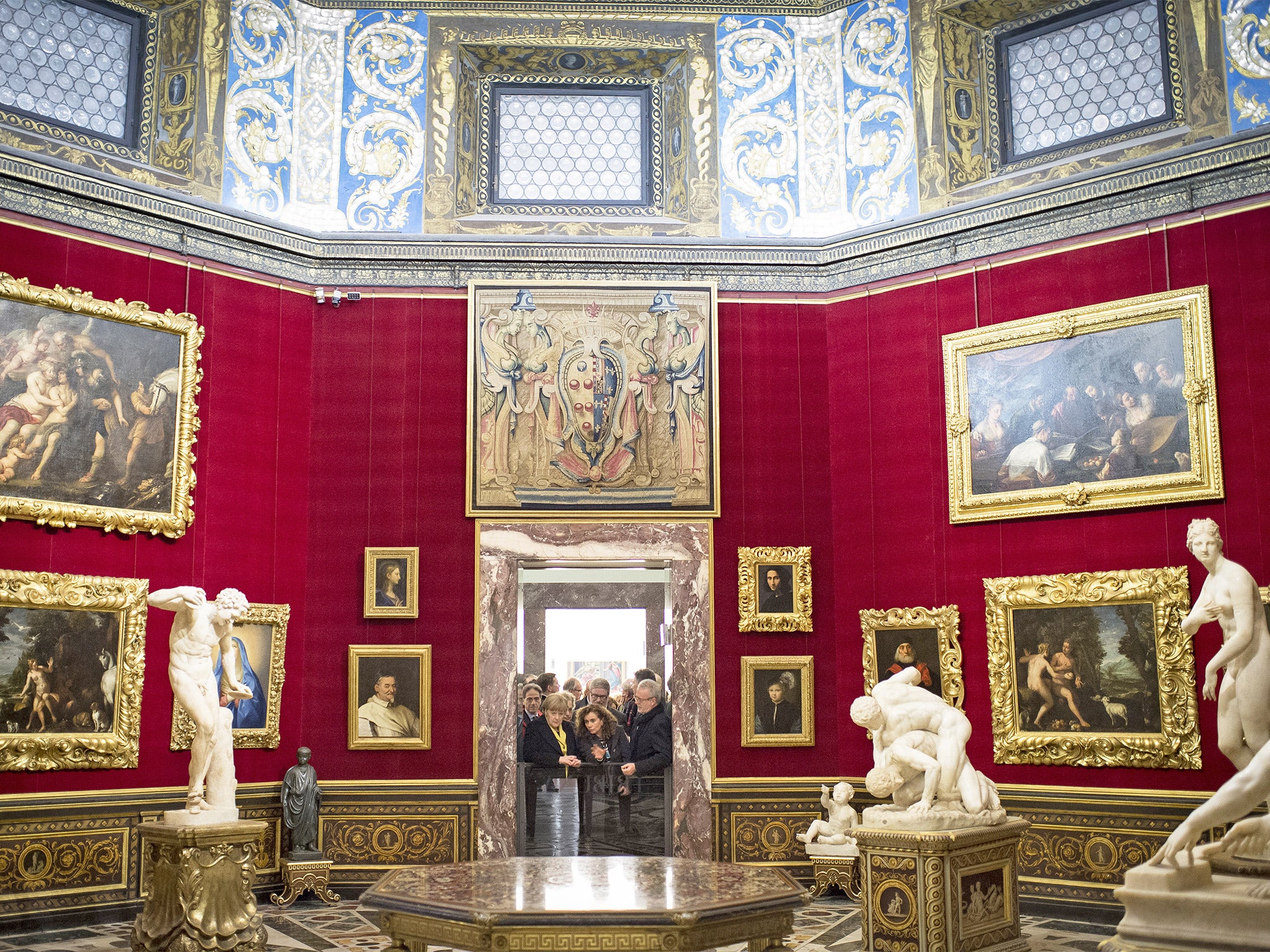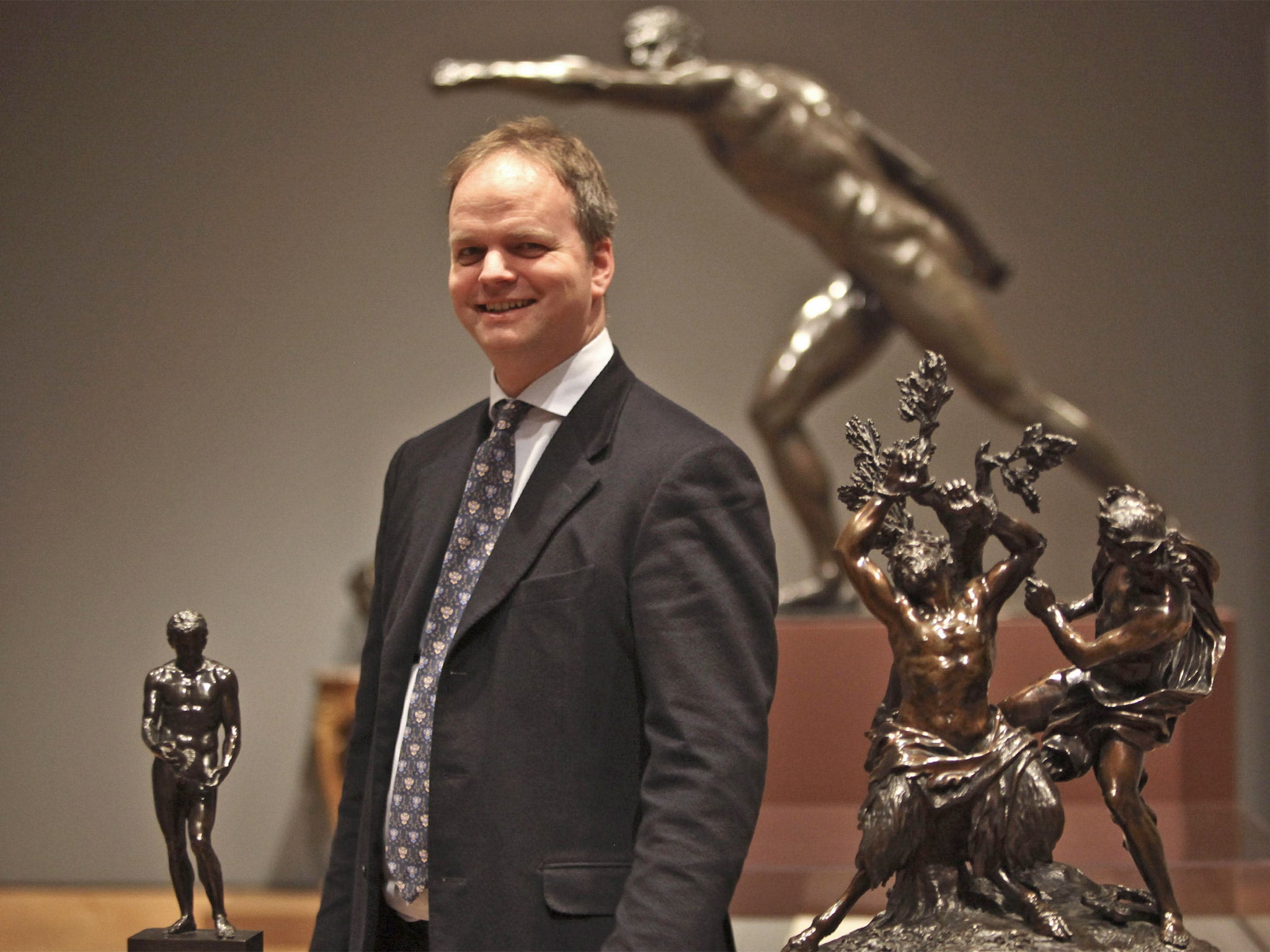Appointment of foreign museum directors labelled a 'slap in the face for Italy' by curators and art critics
Culture Minister hopes to rejuvenate 20 institutions, including the Galleries of the Academy of Venice, Milan's Pinacoteca di Brera and Rome's Galleria Borghese

Your support helps us to tell the story
From reproductive rights to climate change to Big Tech, The Independent is on the ground when the story is developing. Whether it's investigating the financials of Elon Musk's pro-Trump PAC or producing our latest documentary, 'The A Word', which shines a light on the American women fighting for reproductive rights, we know how important it is to parse out the facts from the messaging.
At such a critical moment in US history, we need reporters on the ground. Your donation allows us to keep sending journalists to speak to both sides of the story.
The Independent is trusted by Americans across the entire political spectrum. And unlike many other quality news outlets, we choose not to lock Americans out of our reporting and analysis with paywalls. We believe quality journalism should be available to everyone, paid for by those who can afford it.
Your support makes all the difference.The Italian government has provoked a backlash from curators and art critics by sacking the head of the country’s most prestigious gallery, the Uffizi in Florence, and giving his job to a German, with one pundit describing it as “a slap in the face for Italy”.
The Culture Minister, Dario Franceschini, invited international applications for the directorship of Italy’s top 20 museum jobs earlier this year by placing an advert in The Economist magazine.
He sought directors to rejuvenate 20 institutions, including the Galleries of the Academy of Venice, Milan’s Pinacoteca di Brera and Rome’s Galleria Borghese.
The writing appeared to be on the wall for Italy’s museums – and their top management – with news last summer that one of the greatest masterpieces of the Italian Renaissance, Raphael’s The Deposition, had been left to warp in stifling heat in the Galleria Borghese because calls to repair the air conditioning had gone unheeded for six months.
Mr Franceschini has hailed the new appointments: “It is a historic step for Italy and its museums that will establish the basis for a modernisation of our museum system.”

But Antonio Natali, who has run the Uffizi Gallery since 2006, and who attempted to reapply for his own job, was angry at being replaced by the 47-year-old German art historian, Eike Schmidt.
“A country that says it wants to change could not afford to be seen allowing the old director to stay on,” he said. “I felt bitter when I realised what was happening.”
Many critics have said that decades of underspending on Italy’s cultural heritag and poor management have been to blame for problems in heritage sites. But Vittorio Sgarbi, a high-profile art critic on Italian television, said that hiring so many foreign directors was a “slap in the face” for the nation. He called for the deposed Italian officials to rebel against a selection method that was “deeply unjust and wrong”. Another art expert, Philippe Daverio, said the appointments were “absurd choices”. He told the Corriere Della Sera newspaper: “These decisions reveal a government that has thrown in the towel.”
Angelo Tartuferi, the head of the Gallery of the Florence Academy who was also replaced by a German – 48-year-old Cecilie Hollberg – hit out at Mr Franceschini’s suggestion that the new managers had been hired “to make up for lost decades”. He said Italy had invented museum curation methods that German experts felt obliged to study.
But other pundits backed the new appointments. Achille Bonito Oliva, a professor of art history at Rome’s La Sapienza University, said: “For once meritocracy has triumphed in Italy. All the appointments are of the highest level.”
James Bradburne, a 59-year-old British-Canadian, was given one of the top jobs: running Pinacoteca di Brera in Milan. Mr Franceschini said he hoped the new appointments led to extended opening hours, renovated buildings and healthier finances.
Join our commenting forum
Join thought-provoking conversations, follow other Independent readers and see their replies
Comments